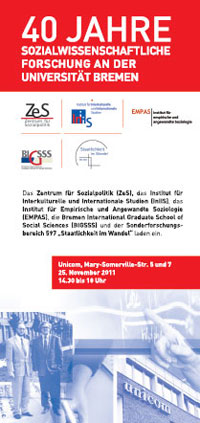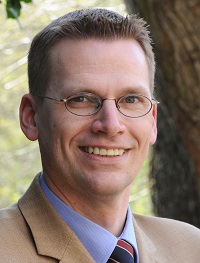 Professor Stefan Traub, Spokesman of the new research group
Professor Stefan Traub, Spokesman of the new research groupOn its October meeting, the Senate of the German Reserach Foundation (DFG) approved setting up a new research group "Needs-based Justice and Distribution Procedures" (FOR 2104) at the University of Bremen. The interdisciplinary research group is a cooperation between eleven philosophers, political scientists, psychologists, sociologists and economists from the Universities of Bremen, Hamburg, Oldenburg, Vienna and Jacobs University Bremen. Economist Professor Stefan Traub, co-director of ZeS' Economics Department, will serve as the spokesman of the research group. Moreover, the University of Bremen is involved in the group with political scientists Professor Frank Nullmeier and Doctor Tanja Pritzlaff, both from ZeS' Theory and Constition of the Welfare State Department, and Philosopher Professor Dagmar Borchers.
In the first three-year funding phase (2015-2017) the research group will investigate how needs are identified at the individual level and how these needs are then acknowleged at the societal level. Does the process of acknowledging needs converge to a stable equilibrium? What is the impact of needs-based redistribution in terms of economic incentives on the sustainability of welfare states? A special feature of the research group is its interdisciplinarity: each project involves at least two disciplines. Furthermore, all projects will conduct laboratoy experiments, where subjects make realistic distribution decisions. In the long run the research groups aims at formulating a normative needs-based theory of distributional justice that is based on experimental evidence. The members of the research group expect transparency to increases the acceptance of needs-based redistribution at the individual level and expertise to improve overall approval for needs-based redistribution in the welfare state.
A DFG research group is a close collaboration of a group of outstanding researchers that work jointly on a specific research questions. Research topic, timeline and funding exceed DFG 's standard procedure for research funding by far. Research groups are usually funded for six years and aim at establishing new research fields.
At this point of time the exact size of the DFG grant is unknown, because the written confirmation is still due.
Contact:
Prof. Dr. Stefan Traub
Helmut Schmidt University Hamburg
Holstenhofweg 85
22043 Hamburg
Phone: +49 40 6541-2865
E-Mail: stefan.traub@hsu-hh.de




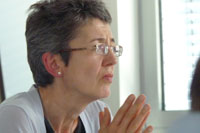 In an introductory statement, ZeS-spokesperson Herbert Obinger summarized the developments of the institute. The respective results were based on the previously published activity report for 2012 and 2013. Not only did this report present contributions in the field of interdisciplinary social policy research, both theory- and application-oriented, and the promotion of young researchers. It also revealed changes in personnel and progress in gender equality policies, as well as improvements in scholarly exchange and public relations. Based on these results, the participants subsequently discussed the future parameters for the institute.
In an introductory statement, ZeS-spokesperson Herbert Obinger summarized the developments of the institute. The respective results were based on the previously published activity report for 2012 and 2013. Not only did this report present contributions in the field of interdisciplinary social policy research, both theory- and application-oriented, and the promotion of young researchers. It also revealed changes in personnel and progress in gender equality policies, as well as improvements in scholarly exchange and public relations. Based on these results, the participants subsequently discussed the future parameters for the institute.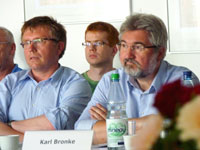 The first part of the session was followed by two academic presentations, overtly displaying the great variety of subjects investigated in the institute. Simone Scherger, chair of the Emmy-Noether research group "Paid work beyond retirement age in Germany and the UK" - funded by the German Research Council (DFG) - presented the results of her research group. Subsequently, Rolf Müller, Heinz Rothgang and Rainer Unger (Department of Health Economics, Health Policy and Outcome Research) introduced their research projects regarding the subject "Long term care as a challenge for social policy and social policy research".
The first part of the session was followed by two academic presentations, overtly displaying the great variety of subjects investigated in the institute. Simone Scherger, chair of the Emmy-Noether research group "Paid work beyond retirement age in Germany and the UK" - funded by the German Research Council (DFG) - presented the results of her research group. Subsequently, Rolf Müller, Heinz Rothgang and Rainer Unger (Department of Health Economics, Health Policy and Outcome Research) introduced their research projects regarding the subject "Long term care as a challenge for social policy and social policy research". The evaluating report at hand emphasizes that the research conducted by the institute within the past two years is again of particularly high quality and valued on an international scale. This is confirmed by extraordinary statistics concerning publications and external funds. The advisory board further welcomed the ambitious and innovative research perspectives which represent that the ZeS - and its national and international recognized expertise - advances into new subject matters.
The evaluating report at hand emphasizes that the research conducted by the institute within the past two years is again of particularly high quality and valued on an international scale. This is confirmed by extraordinary statistics concerning publications and external funds. The advisory board further welcomed the ambitious and innovative research perspectives which represent that the ZeS - and its national and international recognized expertise - advances into new subject matters.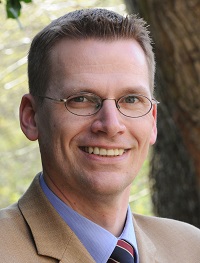
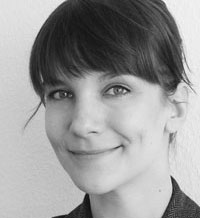
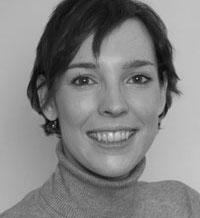 Since April 1, 2013, the Master program “Social Policy” of the Centre for Social Policy Research is coordinated by Irina Wiegand. Her main tasks are advising interested persons, mentoring students and building up an alumni network. Besides that, she aims at the extension of international cooperation in academic teaching. One current project is to transform the cooperation with the University of North Carolina at Chapel Hill into a Double Degree Program.
Since April 1, 2013, the Master program “Social Policy” of the Centre for Social Policy Research is coordinated by Irina Wiegand. Her main tasks are advising interested persons, mentoring students and building up an alumni network. Besides that, she aims at the extension of international cooperation in academic teaching. One current project is to transform the cooperation with the University of North Carolina at Chapel Hill into a Double Degree Program.
